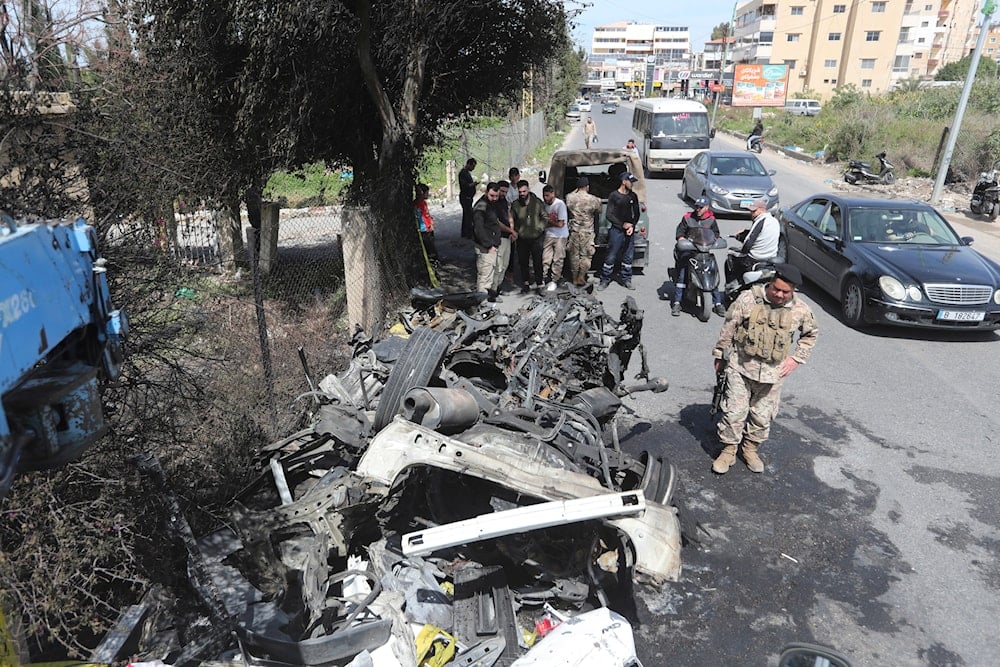Cell suspected in assassination targeting Hamas arrested in Lebanon
Sources revealed that this cell operating in the Rashidieh Camp in Tyre includes three people, two of whom are teenagers who were wandering around the camp under the guise of selling tissues.
-

Lebanese army soldiers stand next to the car targeted by an Israeli drone on the southern outskirts of Tyre, Lebanon, Wednesday, March 13, 2024. (AP)
Palestinian sources disclosed information to Al Mayadeen about a cell suspected to be involved in the assassination of Hadi Ali Mohammad Mostafa from Hamas' Al-Qassam Brigades, as he was leaving the Rashidieh Camp in Lebanon.
The sources revealed that this cell includes three people, two of whom are teenagers who were wandering around the camp under the guise of selling tissue boxes, suggesting that most likely a tracker was placed on the martyr's car.
They added that these two teenagers had likely planted several spy devices near the homes of officials from the Palestinian Resistance, per the request of their operator.
The sources added that a common and combined effort between all Palestinian factions led to the arrest of this suspected cell.
In a statement today, the Palestinian factions and the Islamic forces in Tyre confirmed the arrest of those involved in the assassination of martyr "Abu Shadi", stressing that those involved in the assassination are intruders to the Rashidieh Camp.
The statement added that the suspects were reported to the Lebanese authorities.
On March 13, Al-Qassam Brigades, the military wing of Hamas, mourned and lauded martyr Hadi Ali Mohammad Mostafa, who was killed by an Israeli raid that targeted his car in Tyre on Al-Hush junction and the entrance of the camp in South Lebanon.
Assassinations can't end Resistance, no image of victory for 'Israel'
Assassinating Resistance leaders has proven to be a failed policy to eliminate or defeat their groups, a piece published by the Israeli newspaper Haaretz concluded on March 20.
Commenting on recent Israeli claims that they assassinated Hamas' senior leader Marwan Issa, Yossi Melman, an Israeli intelligence analyst, said that this course of action will not eliminate the movement, emphasizing that Hamas is deeply rooted in Palestinian society; in the West Bank, Gaza, Jordan, Lebanon, Syria, and even outside the Middle East.
He pointed out that the most common Israeli illusion is that "decapitation" will help "make the Palestinian problem disappear," a belief held by many, even in the security and military establishments.
With the brutal war on Gaza nearing the 6-month mark, the Resistance shows no signs that it will be "raising its hands" and surrendering, rather, it has continued its fight, the writer added.
Additionally, the movement's determination is evident in the fact that its fighters have managed to return to areas that the Israeli army claimed to have occupied in Gaza, most notably in the northern and central parts of the Strip.

 3 Min Read
3 Min Read








